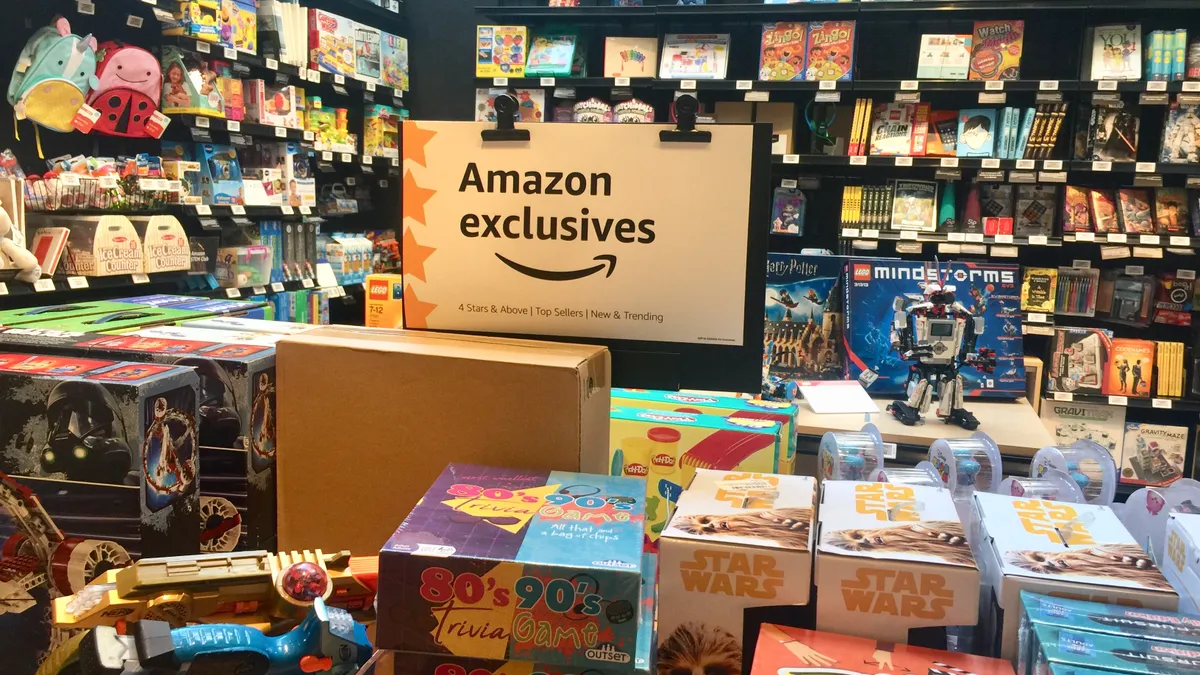Dive Brief:
-
Amazon exclusive sales partnerships with outside brands — deals that grant it a small percentage of sales for exclusive distribution — now outnumber Amazon's private label offerings across most product categories, according to a Gartner L2 study, a copy of which was shared with Retail Dive.
-
At the end of 2018, Amazon had 119 private labels and 223 brand partners in the Amazon Exclusives program, the report stated. Leading growth categories included grocery and gourmet, health care and beauty, and household goods.
-
Gartner also observed that with very little purchasing activity through smart speakers thus far, Amazon could reposition its Echo family and Alexa virtual assistant as a smart home hub. Smart home skills accounted for only 3% of all Alexa skills last year, but almost 30% of the top 100 highest-rated skills on the platform, Gartner said.
Dive Insight:
Amazon has been developing private label offerings across a variety of product categories for a while now, but more recently has appeared to ramp up its efforts to recruit Amazon Exclusives partners. Gartner suggested that this is a trend worth watching closely throughout 2019.
The diversification from Amazon's original private label strategy first took hold in 2018, with companies agreeing to share 5% of product revenue with Amazon and rely on the e-commerce giant for, among other perks, exclusive distribution in exchange for better counterfeit protection, dedicated brand and marketing advocates, automatic Fulfillment by Amazon (FBA) and Prime designations.
Offering more brands that are exclusive to Amazon could help the e-commerce marketplace broaden its selection, and strengthen its ability to differentiate itself from other retailers and e-tailers. Through such partnerships, it can accomplish this with a fraction of the cost, time and labor that it otherwise would take Amazon to create, build up and promote its own brands.
While Amazon may not reap all the revenue from these partnerships, what Amazon may be after is the appearance of having brand names and merchandise that shoppers won't see anywhere else.
Meanwhile, Gartner's observation that Amazon could "realign" its virtual assistant to become more of a smart home hub is a little surprising for a couple of reasons. For one, Amazon already had appeared to be doing that, as much as it had been positioning Echo and Alexa for voice commerce or music search and playback. Although its recent acquisition of WiFi router company eero could be interpreted as a ramping-up of Amazon's smart home efforts, Alexa already has been pretty well positioned for smart home applications.
Secondly, it seems doubtful that Amazon would steer Alexa away from voice commerce. It may be taking a while for buying activity through the virtual assistant to take off, but consumers are still getting used to voice as a shopping interface. There remain great expectations for an eventual voice commerce explosion, according to a recent Juniper Research study. Amazon can afford to be patient, and it also can afford to use attractive promotions, deals and creative forms of advertising and sponsorship to help accelerate voice commerce.











